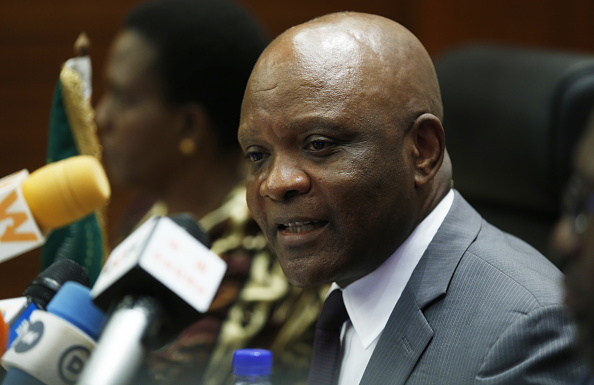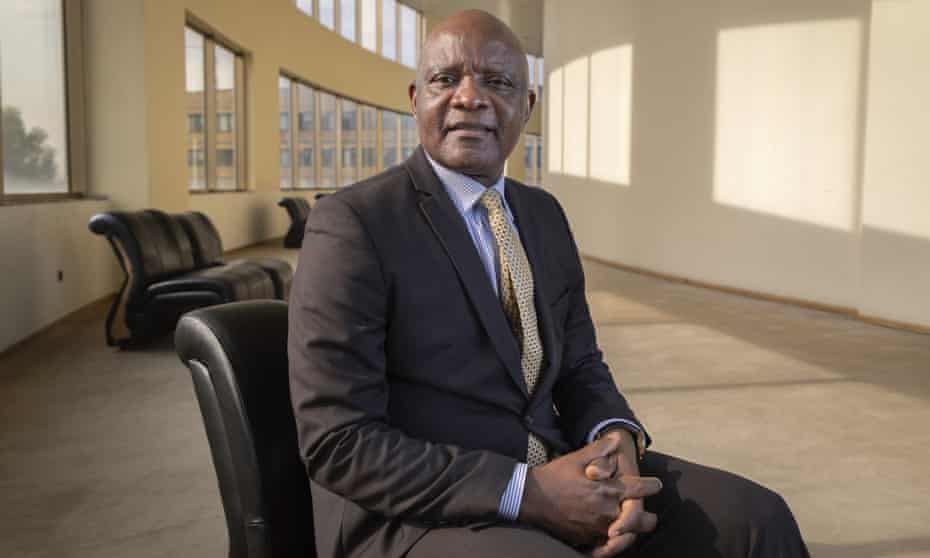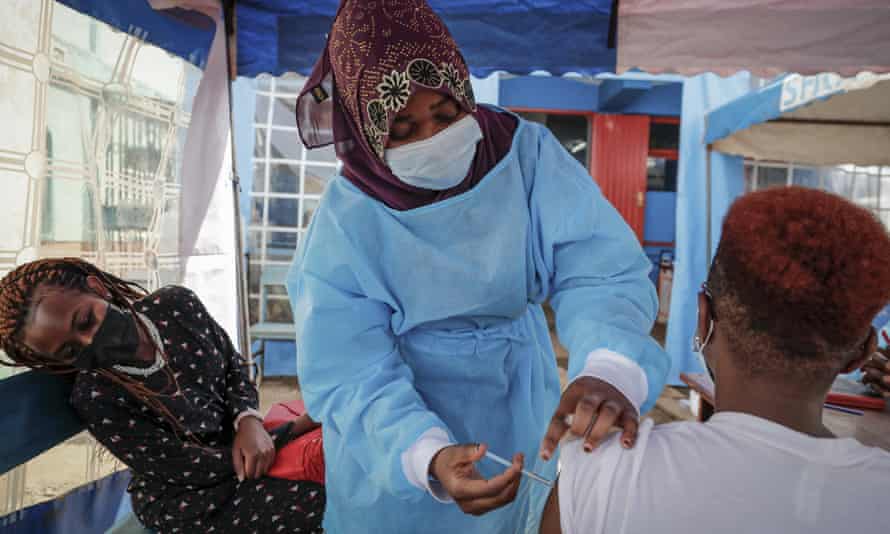
The outgoing director of Africa Centres for Disease Control has seen Ebola, Aids and now Covid – and warns complacency is dangerous

The past five years have been “like going from one fire to the next, with barely any time to catch your breath”, says John Nkengasong, the outgoing head of the body charged with responding to health emergencies in Africa.
A relentless term as the first director of the Africa Centres for Disease Control and Prevention (Africa CDC) saw Nkengasong manage the response to Ebola and Lassa fever outbreaks. But nothing compared to the formidable test brought by Covid-19.
“Before vaccines were available, I knew that it was going to be the greatest geopolitical struggle that the continent will go through,” says a candid Nkengasong. He has been disappointed at the lack of global solidarity to ensure equitable access to vaccines.
“Having been in this space for many years, you know that when there is scarcity, countries tend to look inward because they believe they need to protect their own citizens first. But if our houses are on fire and I only put out the one in my house while my neighbour’s house is still on fire, then, of course, I still have a problem.”
They are both pandemics but this one [HIV] is moving more quietly. We have to make sure we aren’t dealing with one and letting another spread in silence
John Nkengasong
Like much of the world, cases in Africa have waned, but the pandemic is not over. We are in a “dangerous phase”, he says, where complacency or new variants could recast the current outlook.
In a Zoom interview from Addis Ababa, as he prepares to leave the Africa CDC later this year to become head of USAid’s global HIV response – he will be the first person of African origin to hold the post – Nkengasong describes many “trying moments” during the pandemic. Africa has recorded more than 250,000 Covid deaths. For the vast majority of Africa’s 1.1 billion people, accessing a vaccine has been harder than almost anywhere else in the world. About 20% of people in Africa have received at least one dose of a vaccine compared with 75% in Europe.
Big manufacturers have been criticised for prioritising agreements with more powerful countries, even when groups of low-income nations had competitive purchasing power through pooled procurements, such as the UN’s Covax scheme and the African Union’s African Vaccine Acquisition Trust. Yet, while both programmes have offered relief, they’ve fallen short of initially high expectations.

On Wednesday, Kenya said 840,000 vaccines delivered through Covax had expired just weeks after they arrived.
“Covax is really supposed to be an expression of global solidarity and cooperation, but you know the challenges that they face,” Nkengasong says. “It’s not because they didn’t say the right things or plan to do the right things, it just proved difficult to implement the words that people pronounced on the pulpit,” he says, referring to unmet pledges of support.
There has been some reason for optimism recently. Earlier this month, an agreement on vaccine patent waivers between the US, EU, India and South Africa edged closer. This would allow African countries to manufacture their own.
Additionally, Egypt, Kenya, Nigeria, Senegal, South Africa and Tunisia are to produce their own vaccines through a World Health Organization scheme offering the countries access to mRNA technology.
However, lessons had not been learned from the height of the HIV epidemic in the 1990s when African countries struggled to get vital drugs, says Nkengasong, whose early career focused on HIV and Aids diagnosis and treatment at the WHO and then at the US CDC.
“Remember, in 1996, when ARBs [angiotensin II receptor blockers] were available, it took at least 10 years for programmes like Pepfar [the US president’s emergency plan for Aids relief] … to actually come into play to enable Africans to have ARV [antiretroviral] treatment, that is drugs for HIV/Aids. And between that time, about 10 million Africans died.”
With health systems focused towards fighting the pandemic, HIV rates were at risk of rising, he says.
“They are both pandemics, but this one [HIV] is moving more quietly. It’s a big concern at this time and it’s an issue that’s very important to me. We have to make sure we aren’t dealing with one pandemic and letting another one spread in silence.”
The Africa CDC was launched in 2017, in the aftermath of a devastating Ebola crisis in west and central Africa, where more than 11,000 people died between 2014 and 2016. The organisation helped bolster health response systems, which have been highly effective at responding to outbreaks since.
Yet the body operates with modest resources and would benefit from more autonomy, Nkengasong says.
The Africa CDC is unlikely to get respite before a new wave of Covid cases or the next outbreak. “The CDC has never had the luxury of sitting back quietly and building,” he smiles. “Sometimes you can have periods where you can build capacity, set up systems, then sometimes you have to build through a crisis.”
But, he adds, Africa now had to focus on becoming “self-sufficient” to handle future crises. “Never ever should we have had to keep counting on externalities to take care of our own security needs. A key pathway for collective global security is an Africa that is self-sufficient.”
